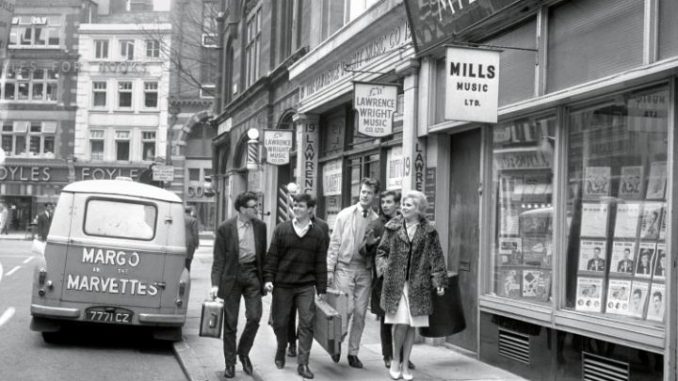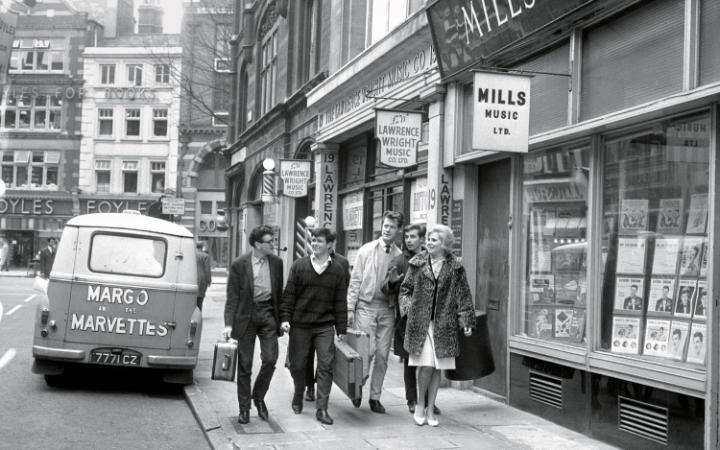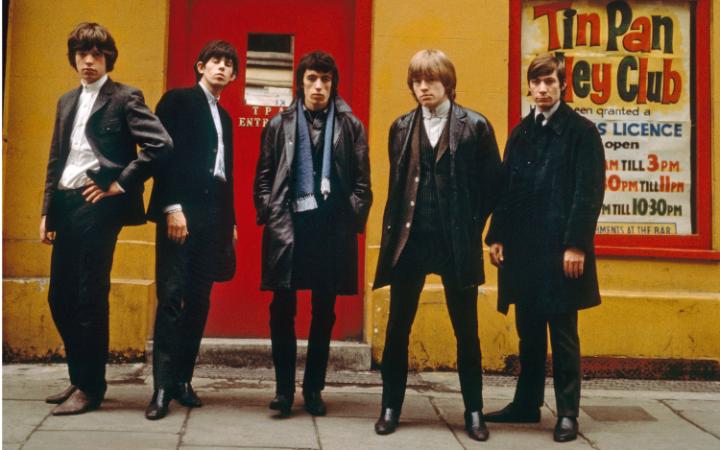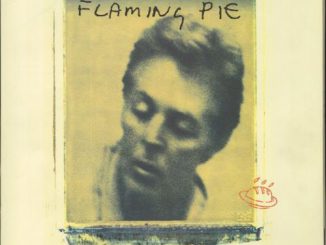

Walking its barely one hundred yards length today, it is hard to hear the echoes of Denmark Street as the birthplace of the British music business.
The guitar shops that once lined both sides of the street are dwindling in number. The music publishers, managers and agents that once occupied virtually every office in every building on the street have long gone – as have the studios where David Bowie, the Rolling Stones,Donovan and the Kinks made their first recordings. The dingy basement club where Adele, Jeff Buckley and scores of other artists got their early breaks is boarded up.
Brick dust and the clamour of heavy building equipment now fill the air. Less than 50 yards away the land has been laid waste to make way for the Crossrail development, scheduled to open in 2018. Part of a conservation area with a number of listed buildings, the fabric of Denmark Street itself is to be preserved; the developers have made assurances that existing music businesses will be retained, and the street’s musical heritage respected. But campaigners and tenants talk darkly of the prospect of Denmark Street being “Disneyfied” into a characterless tourist destination – another of London’s endangered neighbourhoods.
Nostalgia, of course, is an essential currency of popular music – memories are made of songs – and, as George Harrison sang, all things must pass. That’s George Harrison of the Beatles, whose priceless catalogue of material was handled by a music publisher named Dick James. He retired counting his blessings, and his royalties, ever grateful for the day early in 1963 when Brian Epstein, the Beatles’ manager, walked into his Denmark Street office, having been stood up by another publisher, and offered James the group’s publishing rights – almost for a song.

As Ray Davies of the Kinks put it in his ironic tribute song to the street, “You go to a publisher and play him your song/He says, ‘I hate your music and your hair is too long/But I’ll sign you up because I’d hate to be wrong.’”
“It’s definitely not what it was,” the songwriter Guy Fletcher says. “In those days everybody who was anybody in the business was on Denmark Street.” We are sitting in the cafe Giaconda – or rather what used to be the Giaconda, once the favourite meeting place for publishers, singers and writers in search of a deal or a break, where you could stand your spoon in the frothy coffee, and almost choke on the cigarette smoke. Horse-trading, the hustle and the sort of conviviality that could be properly understood only by men who could drink a horse under the table and still spot a hit tune at 50 paces, were the lifeblood of Denmark Street.
“No developer is going to plan a dirty little basement bar, but Denmark Street is unique and its spirit needs to be preserved”
La Giaconda is now a steak restaurant – and a rather good one, but it doesn’t serve coffee, we are told. Fletcher sighs. What’s the world coming to?
Fletcher arrived in Denmark Street in 1964, to work for the music publisher Keith Prowse. Shortly after his arrival his boss called him to look out of the window.
Peering out from his third-floor office, Fletcher could see every window of every building was flung open, people craning their necks to look down the street. Walking down the middle of the road at a regal pace was a man dressed in an ankle-length camel-hair overcoat and a Homburg hat, with a rose in his lapel, accompanied by a retinue of flunkies. As he processed down the street the man was waving up at the craning heads, a king accepting the obeisance of his subjects.
Read more at the Telegraph




Be the first to comment